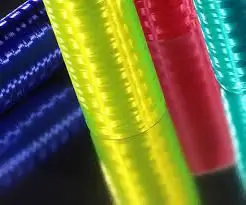2026 Author: Howard Calhoun | calhoun@techconfronts.com. Last modified: 2025-01-24 13:10:35
Today, synthetic polymers occupy a very important position in the life of all mankind. They are used in various areas of our daily life: from clothing, dishes, toys to aircraft, rockets, cars. And one of the most interesting and indispensable for a number of unique properties is synthetic rubber. The formula of the natural analogue has a regular structure, while the synthetic analogue has an irregular structure.

Produce polymers of this type on an industrial scale began shortly before World War II in Germany and Russia. Sodium butadiene rubber "Buna" was produced in Germany. And in Russia, polybutadiene was the first to be produced on an industrial scale. It was produced by the method of anionic polymerization of liquid butadiene, developed by Lebedev S. V.
Already after the war, due to the lack of a natural product, a synthetic variety was also produced in the USA. From that time to this day, the production of various materials based on synthetic rubber, as well as allrubber products, refers to large-capacity production. Automotive, aerospace and aviation, mechanical engineering, construction, electrical engineering, medicine, footwear industry, consumer goods - none of these industries can exist without this unique polymer. Such a wide application is due to a complex of unique physical and mechanical characteristics of various types of rubber and rubbers based on them.

Synthetic rubber is an elastomer with elasticity, water resistance and electrical insulation properties. Using the vulcanization process, polymers of this type can be processed into rubber and ebonite.
All polymeric materials of this class are divided according to the field of application into rubbers of special and general purpose. General purpose synthetic rubber is one that is characterized by a complex of highly technical properties (elasticity, strength, wear resistance, etc.). General purpose rubbers are successfully used for a wide range of mass-produced products, mainly for car tires. These include butadiene, butadiene-methylstyrene, isoprene rubber, as well as isobutylene-isoprene copolymer (butyl rubber).

Synthetic rubber for special purposes always has several or one unique property that fully meets the special requirements for product performance in extreme conditions. For example, nitrile butadieneknown for its high oil and petrol resistance. Fluorine-containing are excellent sealants and sealants with increased heat resistance (over 200 ° C). Polysulfide synthetic rubber, vinylpyridine, urethanes, halogenated isobutylenes, etc. are also known.
Despite such a variety of types of polymeric materials in terms of structure and properties, today developments continue in this area in order to be able to satisfy the ever-growing demands of different consumers in various fields of activity.
Recommended:
The consumer market is part of our daily lives

The article reveals the concept of the consumer market, provides a classification of markets, directions of development of the consumer market at the present stage. The Ministry of Consumer Market and Services of the Moscow Region regulates this area
Synthetic fibers. Synthetic polyamide fiber

Synthetic fibers began to be produced industrially in 1938. At the moment, there are already several dozen of them. All of them have in common that the starting material for them is low molecular weight compounds that are converted into polymers through chemical synthesis. By dissolving or melting the resulting polymers, a spinning or spinning solution is prepared. Fibers are formed from a solution or melt, and they are only then subjected to finishing
Synthetic accounts. Synthetic and analytical accounts, the relationship between accounts and balance

The basis for monitoring and analyzing the financial, economic, investment activities of an organization are accounting data. Their reliability and timeliness determine the relationship of the enterprise with regulatory authorities, partners and contractors, owners and founders
How synthetic isoprene rubber is made

Natural rubber has many analogues, and isoprene rubber is considered one of the most large-tonnage. The industry produces a wide variety of types of these products, differing both in properties and in the type of catalysts that were used - lithium, complex, and the like
Krasnoyarsk synthetic rubber plant: production facilities, product overview

Krasnoyarsk Synthetic Rubber Plant has been producing products since 1947, deliveries are made to 35 countries of the world. The production is more than 42 thousand tons per year, the range includes 85 brands of rubber. The company is one of the ten world leaders in the industry

